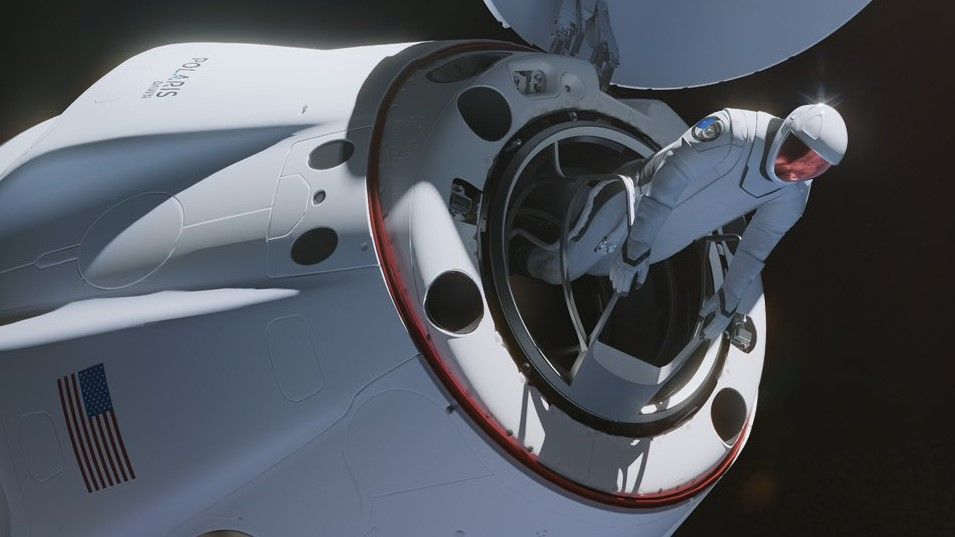The first commercial spaceflight mission with a spacewalk now has a launch date.
Polaris Dawn, part of a private human spaceflight program funded by billionaire Jared Isaacman, will launch no earlier than July 31, project representatives announced today (July 3) in a brief statement on X. Isaacman and SpaceX founder and CEO Elon Musk, whose company will provide Polaris Dawn’s Dragon capsule and Falcon 9 rocket, have not yet put statements out on social media.
The crew plans to conduct the first-ever private spacewalk with bespoke SpaceX spacesuits made for the effort, along with a raft of experiments. Polaris Dawn’s orbit will take the mission about 435 miles (700 kilometers) above Earth, in the highest-altitude crewed flight since the Apollo moon missions of the 1960s and 1970s. For comparison, the International Space Station orbits at roughly 250 miles (400 km).
Polaris Dawn will be the first of a trio of missions of the Polaris Program, all funded and commanded by Isaacman. The Shift4 founder also helmed and bankrolled the all-civilian Inspiration4 launch in September 2021, which raised $250 million for St. Jude Children’s Research Hospital in Tennessee along the way; Isaacman plans to continue that support with the Polaris missions.
Related: How SpaceX’s private Polaris Dawn astronauts will attempt the 1st-ever ‘all-civilian’ spacewalk
Aside from Isaacman, the mission includes retired United States Air Force (USAF) Lieut. Col. Scott “Kidd” Poteet as pilot and mission specialists Sarah Gillis and Anna Menon, both SpaceX operations engineers.
The complexity of the mission, according to project representatives, required delays during development from an initial launch target of late 2022. The most recent major delay in February 2024 pushed the projected April launch into summer.
“The additional time continues to provide necessary developmental time to ensure both the completion of these mission goals and a safe launch and return of Dragon and the crew,” the Polaris Program said via X at the time.
The training schedule has been evolving as well, Poteet stressed in a “Spaces” discussion on X on May 4. “We’ve kind of piled on to what NASA has done over generations as far as identifying environments and situations that are stressful,” he said, noting that part of the work has been learning about where teammates do well and where they may need help.

Dr. Thomas Hughes is a UK-based scientist and science communicator who makes complex topics accessible to readers. His articles explore breakthroughs in various scientific disciplines, from space exploration to cutting-edge research.








